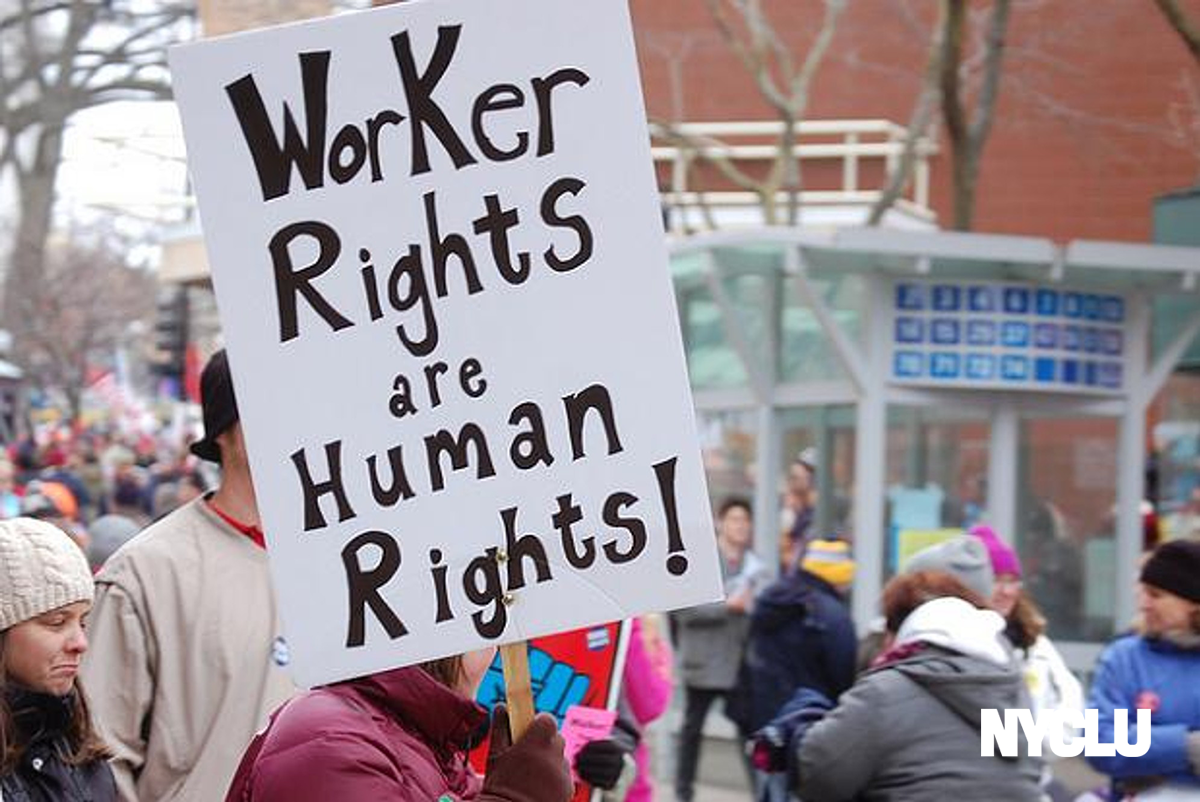A Long Island Legislature is Robbing New Yorkers of Color of their Voting Rights
Civil Liberties Union

Hundreds of thousands of workers across the U.S. participated in a nationwide strike on May 1, 1886 to demand an eight-hour workday. The protests were particularly violent in Chicago, where a bomb was detonated and police opened fire in Haymarket Square, killing several men and wounding hundreds more. Thus, International Workers’ Day was born. For the past 134 years, May 1st has been a day to recognize workers and the continued struggle for justice and dignity in the workplace.
In the midst of the coronavirus pandemic, this year’s May Day celebration is of particular significance as we wrestle with questions of what is crucial for our everyday existence and whose labor will be used to procure it. One thing is abundantly clear – some of the most devastating effects of COVID-19 have been inflicted on many of the poorest and most exploited workers. Ironically, these are the very same workers who have been deemed essential to our daily lives.
The people who work in large warehouses fulfilling orders, at grocery stores check-out counters, and for restaurant and grocery delivery services need greater protections from COVID-19 and paid leave. While some workers are represented by strong unions that protect their rights to a safe and healthy workplace and paid time off, many are left to fend for themselves.
Today, because of the expanding power of corporate behemoths and the decline in labor union membership, economic inequality and near limitless control over employment conditions continues to grow, the likes of which have not been seen since the onset of the Industrial Revolution. As the demand for fair wages and a greater say in conditions at work have been steadily increasing, labor unrest continues to grow. In 2018 alone, 485,000 workers were involved in major work stoppages, the highest number since 1986.
Workers are not powerless however. For one hundred years, the ACLU has protected workers’ rights to speak out against abuse and exploitation, and be free from employer retaliation when they do. During the anti-union crusades in the early 20th century, Roger Baldwin, Chrystal Eastman and their colleagues were among the many who fought for workers’ rights by seeking injunctions, defending jailed strikers, and challenging laws banning public meetings. The current pandemic is the clarion call that it is more important than ever to continue to fight for these rights.
The same laws that protected workers who demanded better pay and working conditions in the 1930s protect workers today who are demanding healthier and safer work environments. On both the federal and state levels, laws that protect concerted activity and whistle blowing apply to both public and private workplaces. Workers have rights to join together and demand that their employers follow COVID-19 health and safety guidelines and, if employers are derelict, to speak out on social media and in the press, to file complaints with governmental agencies, and to refuse to work or go on strike as a form of protest. Equally important, these laws also protect workers from being fired or otherwise retaliated against for exercising their rights. In addition, if workers are required to quarantine or take care of themselves or a family member, new emergency regulations are now in place to provide paid sick and family leave.
Like the values that animate freedom of speech and association protected by the First Amendment, these workplace laws are fundamental to our democracy. Many of the rights we take for granted today — the 40-hour workweek, minimum wage, unemployment insurance, social security, and paid sick and family leave — were the results of years of struggle by workers challenging workplace injustice through collective action and the freedom to associate and organize without fear of reprisal. While yesterday’s low-income workers were largely white, European immigrants, today’s low-income workers are predominantly Black and Brown.